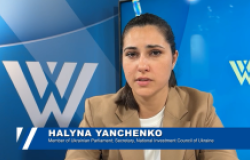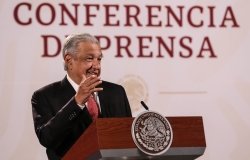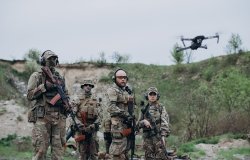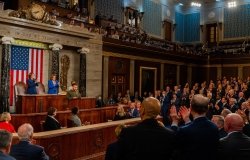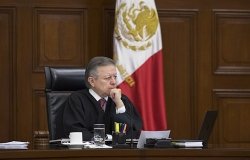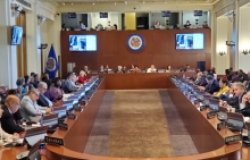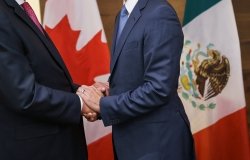Will It Take a New Bretton Woods to Resolve the Financial Crisis?
Wilson Center Fellow Kathryn Lavelle argues that multilateral cooperation is essential to resolving the financial crisis. But she asks what role, if any, the International Monetary Fund and World Bank will play in its resolution.
Kathryn Lavelle arrived at the Wilson Center in September 2008 intending to write about the relationship between the U.S. Congress and the International Monetary Fund (IMF) and World Bank, the two international financial institutions established at the 1944 Bretton Woods conference.
When she began the research a year earlier, the IMF was in the midst of massive layoffs for the first time in its history and appeared on the periphery of global economic relations. Once she arrived in Washington to begin her fellowship, the financial crisis was in full swing, and President Bush and other world leaders called for an entirely new Bretton Woods agreement.
Lavelle's project begins with the premise that multilateral cooperation is imperative to resolve the financial crisis. "The question is whether we'll resolve it through formal, rule-based institutions like the IMF and World Bank, through informal arrangements like the Group of 20 nations, or through bilateral relations such as the U.S.-China Strategic and Economic Dialogue," Lavelle said.
The key to successful multilateral cooperation lies with domestic support in the banking, international trade, advocacy, and religious communities. "Without support from domestic constituencies that work to support multilateral cooperation on Capitol Hill, the IMF and World Bank cannot be effective," Lavelle said.
Lavelle previously was a fellow on the Committee on Financial Services in the House of Representatives, where she learned the mechanics between Congress and the Bretton Woods institutions. Unlike other advanced, industrial democracies, the U.S. Congress acts independently of the executive branch that negotiates agreements among countries. Therefore, Congress can pose a formidable obstacle when these agreements must be ratified or they require funding.
To get around this problem at the end of World War II, American leaders learned from the failure to join the League of Nations and included members of Congress in the delegation to Bretton Woods, New Hampshire when they negotiated the initial framework for stabilizing international financial and trading relations. Unlike the Treaty of Versailles, the Bretton Woods Agreement was ratified.
Nonetheless, the early IMF and World Bank were off to a slow start and most of the money that rebuilt Europe was eventually funneled through the Marshall Plan. By the early 1950s, the young organizations developed better relations with the international banking and business communities.
But when the 1982 debt crisis exploded, the IMF in particular became a different kind of organization than its founders had intended. It changed again after the 1997 Asian financial crisis, when borrowing countries began to hold their own reserves and avoid seeking help from the Fund.
Lavelle said observing patterns in history can help policymakers avoid repeating such political and economic disasters as the Great Depression and World War II.
"The current crisis is another turning point for the IMF and World Bank," Lavelle said. "The IMF must demonstrate it has changed from the type of institution it was during the 1980s that imposed a high degree of conditionality with its lending, and the World Bank must find a mission in the new world of changing capital markets that resonates with lenders and borrowers alike."

